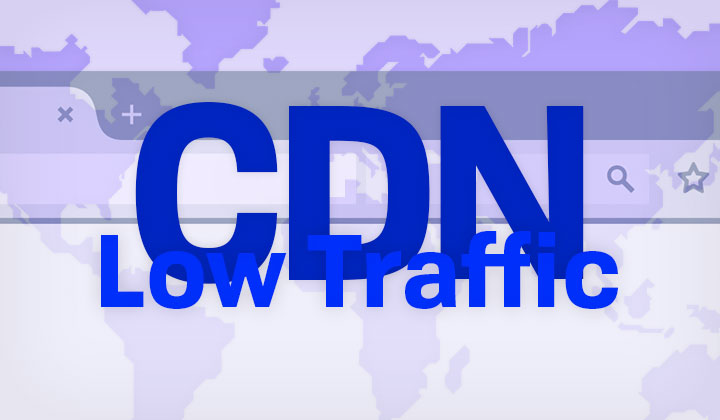Generally CDNs are geared towards big high-traffic websites; even those claiming to be low-cost have minimum yearly credit deposits which expire if left unused.
These are best CDNs for speeding up smaller low-traffic websites in 2025.
Welcome to the CDN revolution; for everyone big or small.
Leader: BunnyCDN
The undisputed winner in extreme scalability; BunnyCDN is the most suitable CDN for small websites like personal blogs and small businesses.
Your account runs with prepay credits and the minimum one time deposit is $5. Be aware that a yearly minimum deposit of $10 is required; however deposited credits will never expire unlike with most other credit based CDNs.
- Minimum credit deposit of $10/year (minimum $5 per deposit)
- Credits never expire and can be saved up for future use
- Per GB price from $0.01 for low-traffic amounts
- Cheapest yearly minimum for a CDN; no contracts/monthly payments
- Unlimited websites under the same account
- 16 global data centers in five continents
- CNAME supports free Let’s Encrypt TLS/SSL certificate
How much traffic that is depends on things like — (a) your average page size (b) visitor engagement and (c) which parts of the world content is delivered to.
As a highly affordable CDN; you will still be getting a lot of bandwidth to use on a yearly basis. For those with growth in mind saved up credits will come in handy.
Here’s an example of a possible traffic scenario:
Let’s say the origin of your website visitors are equally divided to Europe, USA, Canada, Ocean Pacific & Asia; the average GB cost would be $0.02.
- That is 500GB of total traffic for the minimum $10 yearly deposit.
- Let’s say on average a visitor opens four pages; one page 1.25MB.
- You need 100,000 yearly visitors or 8,333monthly visitors to use up the $10.
As you can see; this is still not well within the limits of a “small website” but it’s the best option we have for a real high performing CDN.
Runner up: CDNSun
With the lack of a runner up that would match the low-cost of BunnyCDN; I am presenting to you CDNSun which is worth considering for more content delivery locations (known as PoPs) & higher performance.
It’s also the second cheapest option for a CDN there is.
- Minimum credit deposit of $49/year
- Unused credits will expire after 1 year has passed from date of deposit
- Cost from $0.05 per GB
- 70 data center locations in 5 continents
- CNAME supports free Let’s Encrypt TLS/SSL certificate
Let’s say your website visitors are equally divided between Europe, North America, South America, Asia & Pacific — $49 is worth of 1TB of traffic per year.
CDNs Unsuitable for Small Websites
Let’s have a look at the rest of the CDN providers and how they stack up in cost.
- KeyCDN — minimum $49/year, credits expire, website slower than without CDN
- CloudFlare — $20/month/domain, $240/year (free plan not a proper CDN)
- CDN77 — minimum $149/year, credits expire after second year
- Fastly — minimum $50/month, $600/year
- Quantil — minimum $1000/month, $12000/year
- StackPath — minimum $20/month, $240/year
- BelugaCDN — minimum $5/month, $60/year
And so on…! So while ease-of-use has become widespread with nearly all content delivery providers with easy WordPress support and quick set up; small business and personal website support is only starting.. updates to follow!
What’s your take on running small low-traffic websites on CDN?
Non-commercial sensible comments extremely welcome; thank you!
Mandatory notice: For my benefit and readers convenience I have occasionally placed affiliate links within the pages which may result in economic benefit.
